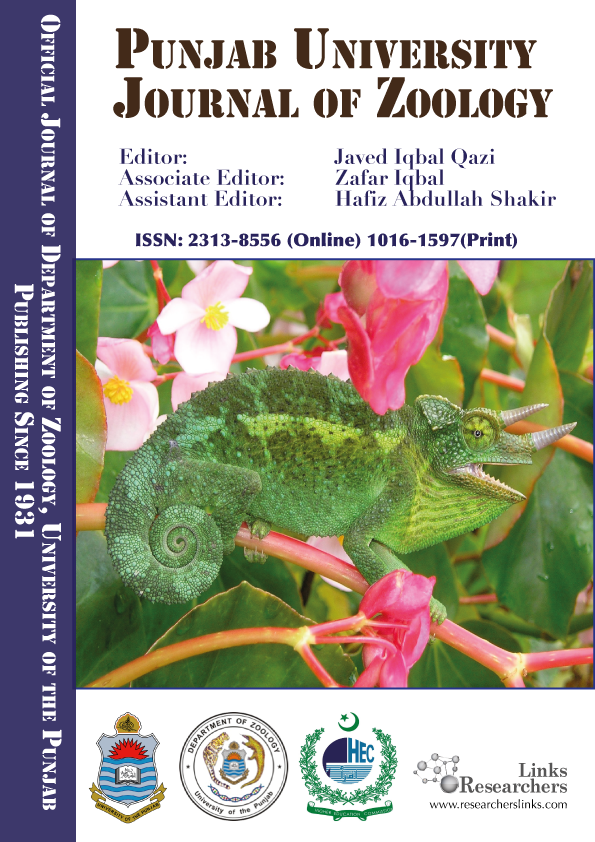Toxicological effects of Haloxylon recurvum Bunge ex Boiss (Khar Boti) whole plant extract and novel insecticide chlorantraniliprole against maize weevil, Sitophilus zeamais Motschulsky
Toxicological effects of Haloxylon recurvum Bunge ex Boiss (Khar Boti) whole plant extract and novel insecticide chlorantraniliprole against maize weevil, Sitophilus zeamais Motschulsky
Toxicological effects of Haloxylon recurvum Bunge ex Boiss (Khar Boti) whole plant extract and novel insecticide chlorantraniliprole against maize weevil, Sitophilus zeamais Motschulsky
Zubair Ahmed#, Muhammad Farhanullah Khan, Habiballah Rana*
ABSTRACT
A great variety of stored grain pests attack stored commodities at storage facilities.
Among these, maize weevil, Sitophilus zeamais is one of the most threatening
pests. Botanical insecticides derived from plants have increased popularity in
stored products protection due to ecological concerns and insect resistance to
chemical insecticides. In these regards, a study were carried out to evaluate
toxicity of crude methanol extract of whole plant of Haloxylon recurvum (Khar boti)
and a novel insecticide chlorantraniliprole. A serial concentration of extract i.e.,
1.2%, 2.4%, 3.6%, 4.8%, 6.0% and insecticide 0.00224%, 0.00448%, 0.00896%,
0.01792%, 0.02688%, respectively, were topically applied to adult S. zeamais.
Contact toxicity assayed by topical application showed that 3.6% concentration of
H. recurvum plant extract and 0.00896% concentration of chlorantraniliprole
induced lethal effects in S. zeamais. Probit analysis revealed LD50 value for H.
recurvum plant extract were 16.47 μg/insect and chlorantraniliprole were 0.0358
μg/insect, after 24 hours. The result revealed that H. recurvum plant extract had
insecticidal potential against the stored grain pest, S. zeamais. Current study
suggests H. recurvum plant extract could be a good alternative against
conventional insecticides.
To share on other social networks, click on any share button. What are these?







